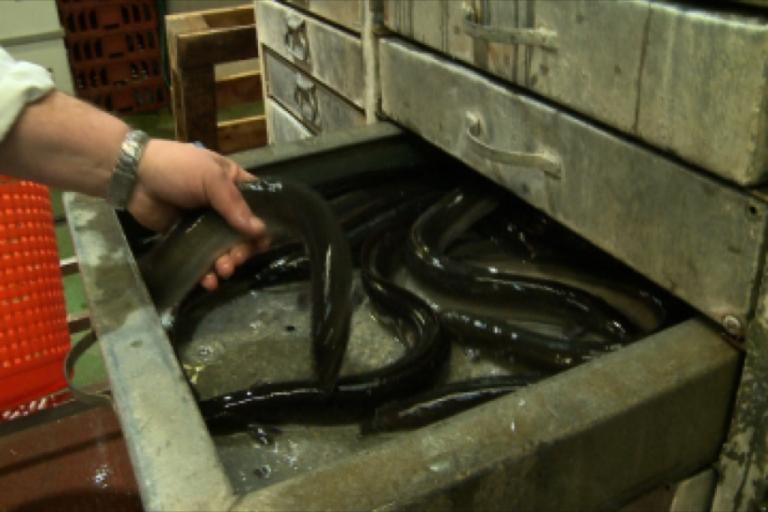On Location: Learning to love cold eel jelly in London’s East End (VIDEO)
Editor's note: This story was originally published on Feb. 26, 2014.
LONDON, UK — It’s not clear who started the unfair rumor that English food is bad.
Could it perhaps have been an uninitiated American who went to East London and came across a bowl of jellied eel?
Jellied eel was the go-to fast food choice of London’s Cockney East End from the 18th century until just after World War II.
Eel, pie and mash shops are a peculiarly east London institution, selling stewed or jellied versions of the slippery fish, meat pies and mashed potatoes. They were as prolific in the capital’s working-class neighborhoods as fried chicken joints are today.
Eel was cheap and plentiful. Fishermen hauled them from traps in London’s River Thames. Even bigger catches from Holland or Britain’s River Severn arrived each day at Billingsgate Market, the capital’s main seafood emporium.
London likes its eel one of two ways: stewed (chopped eel boiled in salt water and served hot with a parsley sauce known as "liquor") or jellied (boiled in salt water until the eel releases a gelatinous protein, then served cold in its own translucent, eel-flavored goo.)
It’s an acquired taste.
“I tried ‘em once. I tried ‘em twice. First time, I thought they was wriggling around inside me,” said Sue Mustafa of Cockney’s of Croydon, one of London’s last eel vendors. “After that, it was fine.”
Culinary trends come and go. Jellied eel’s heyday has undoubtedly passed.
One by one, London’s eel, pie and mash shops are closing as fast-food tastes shift to the hot and salty instead of the cool and fishy.
A few staunch holdouts keep eel on the menu, but it’s a sideshow to more popular meat pies and mashed potatoes. It’s ordered mainly by giggling kids on dares, eel slingers say, or curious tourists, or elderly customers whose numbers are fewer every year.
“We don’t sell as many eels in a week now as they used to sell in a day,” said Rick Poole of M. Manze, a family-owned pie and mash chain dating back to 1902.
There aren’t as many eels anymore, either. Europe’s eel population has plunged 70 percent in the last 40 years, said Andrew Kerr, chairman and founder of the Sustainable Eel Group. Scientists aren’t entirely sure why, though they suspect it has to do with changes in ocean temperatures and currents.
Jellied eel’s decline parallels the loss of a certain kind of London. The East End used to be a tough, working-class part of town, home to people who labored on the docks.
London has become an expensive place. Money crept in from the City, London’s financial district. Priced-out Cockneys fled to the suburbs. Hipsters and bankers took their place.
“They’re not my customers. They don’t like eel,” said Bob Cooke, owner of the Hackney eel and pie shop F. Cooke.
Cooke’s 114-year-old storefront stands out among organic cafes and foodie boutiques selling imported olives.
Bob was born upstairs, above the cafeteria where he still serves stewed and jellied eels. He’s F. Cooke’s grandson, and the fourth generation of his family in the eel trade.
His daughter owns an eel and pie shop in the London suburbs, where many Cockneys have moved, Cooke said — and it does quite well.
We want to hear your feedback so we can keep improving our website, theworld.org. Please fill out this quick survey and let us know your thoughts (your answers will be anonymous). Thanks for your time!
